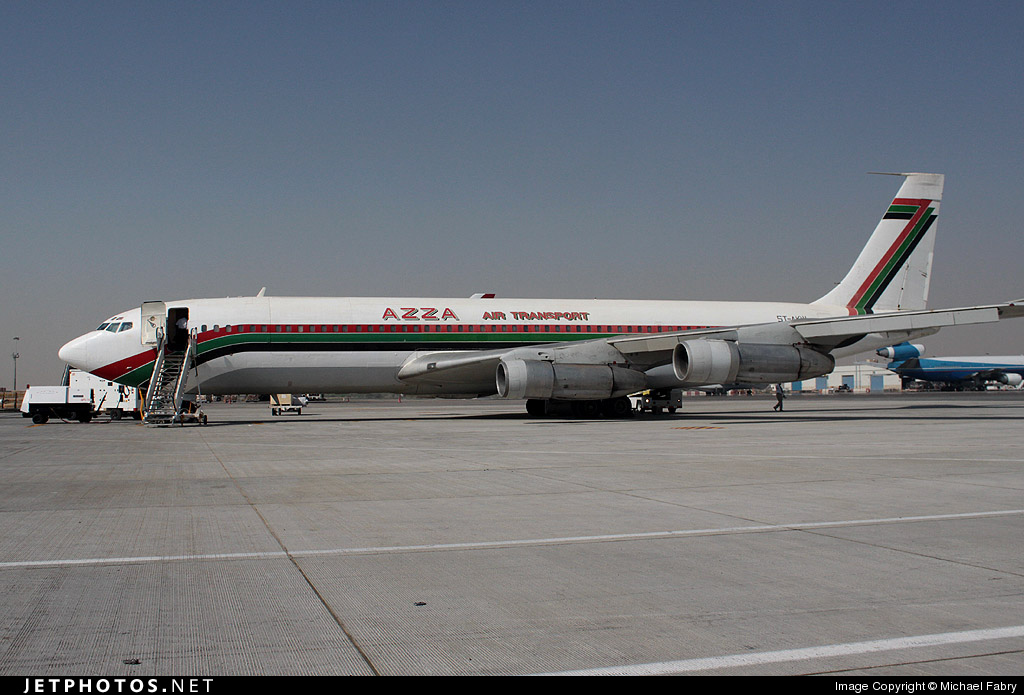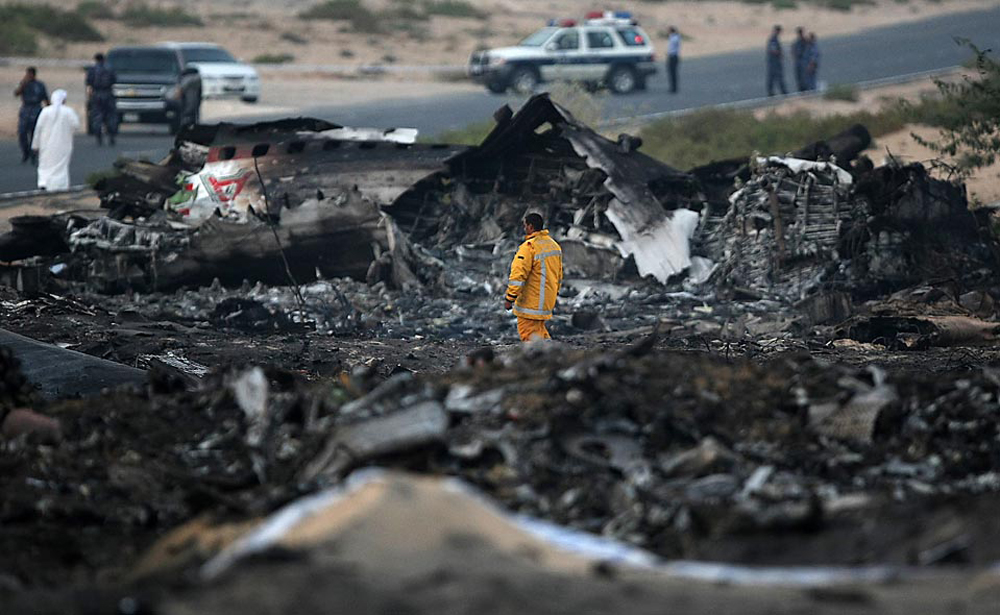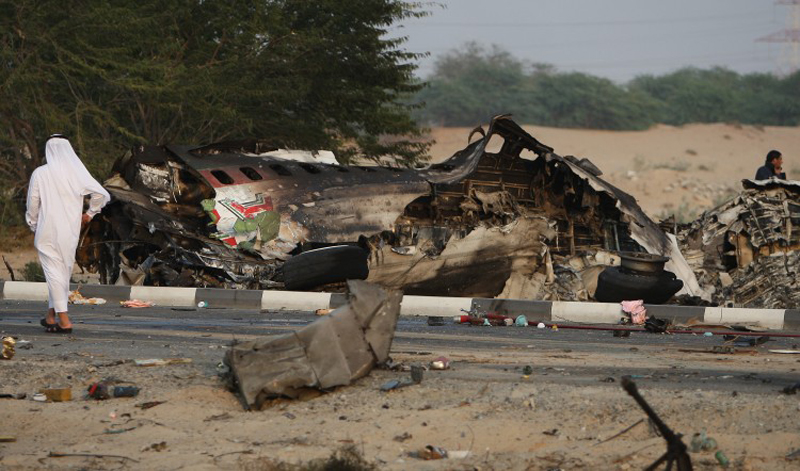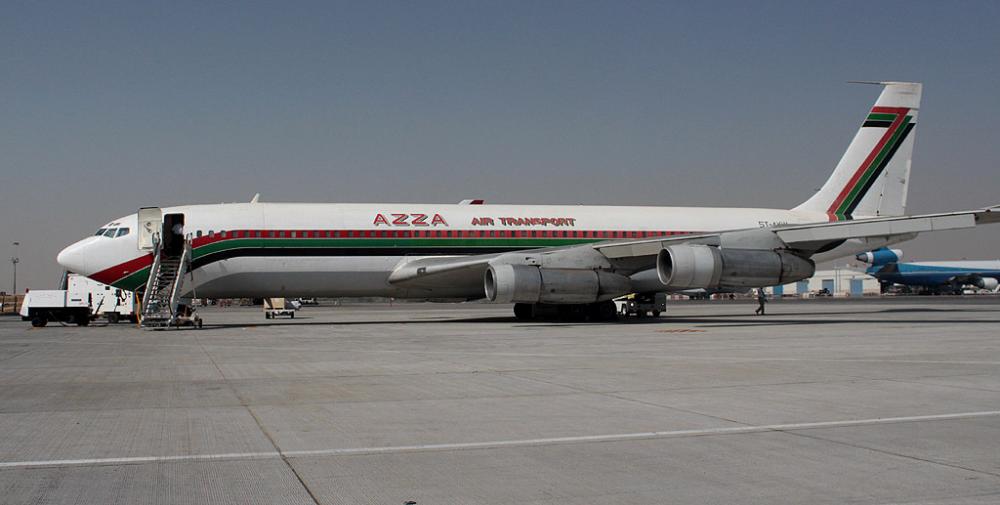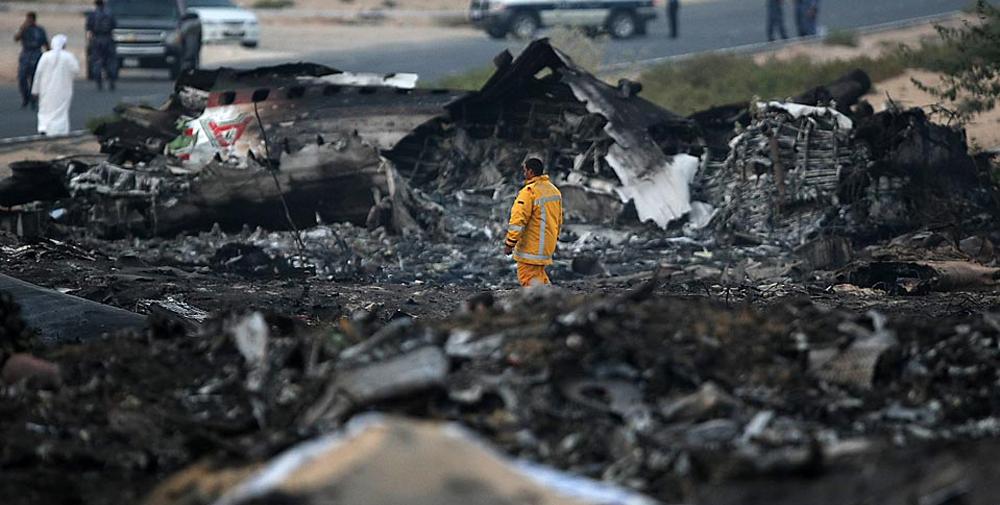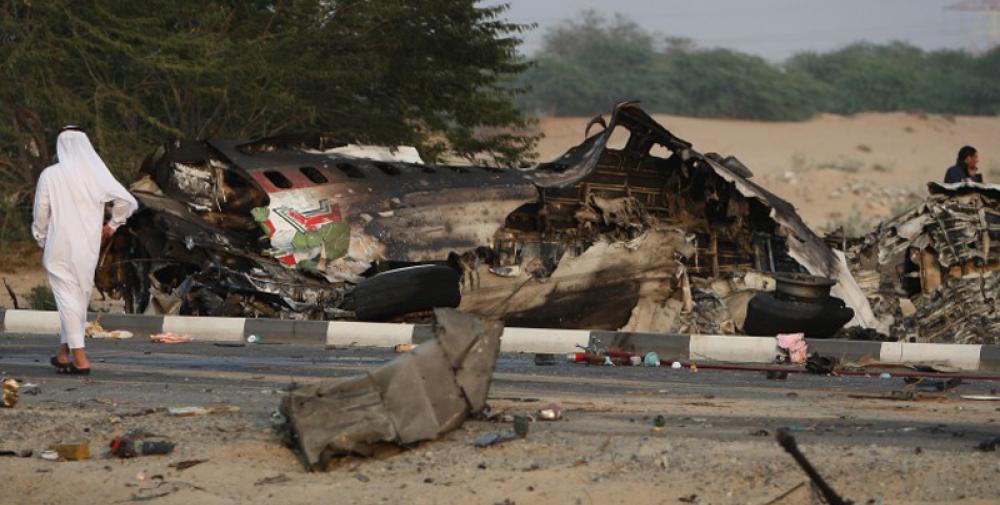Date & Time:
Oct 21, 2009 at 1531 LT
Type of aircraft:
Boeing 707
Registration:
ST-AKW
Flight Phase:
Takeoff (climb)
Flight Type:
Cargo
Survivors:
No
Schedule:
Sharjah - Khartoum
MSN:
20123/788
YOM:
1969
Flight number:
AZZ2241
Country:
United Arab Emirates
Region:
Asia
Crew on board:
6
Crew fatalities:
6
Pax on board:
0
Pax fatalities:
0
Other fatalities:
0
Total fatalities:
6
Copilot / Total hours on type:
900
Aircraft flight hours:
77484
Aircraft flight cycles:
26888
Circumstances:
The Aircraft was operating a flight from Sharjah International Airport, UAE to Khartoum International Airport, Sudan, with a total of six persons on board: three flight crew members (captain, co-pilot, and flight engineer), a ground engineer, and two load masters. All of the crew members sustained fatal injuries due to the high impact forces. Sometime after of liftoff, the core cowls of No. 4 engine separated and collapsed onto the departure runway, consequently No. 4 Engine Pressure Ratio (“EPR”) manifold flex line ruptured leading to erroneous reading on the EPR indicator. The crew interpreted the EPR reading as a failure of No. 4 engine; accordingly they declared engine loss and requested the tower to return to the Airport. The Aircraft went into a right turn, banked and continuously rolled to the right at a high rate, sunk, and impacted the ground with an approximately 90° right wing down attitude.
Probable cause:
The Investigation identified the following Causes:
(a) the departure of the No. 4 engine core cowls;
(b) the consequent disconnection of No. 4 engine EPR Pt7 flex line;
(c) the probable inappropriate crew response to the perceived No. 4 engine power loss;
(d) the Aircraft entering into a stall after the published maximum bank angle was exceeded; and
(e) the Aircraft Loss of Control (“LOC”) that was not recoverable.
Contributing Factors to the Accident were:
(a) the Aircraft was not properly maintained in accordance with the Structure Repair
Manual where the cowls had gone through multiple skin repairs that were not up to
aviation standards;
(b) the Operator’s maintenance system failure to correctly address the issues relating to the No. 4 engine cowls failure to latch issues;
(c) the failure of the inspection and maintenance systems of the maintenance organization, which performed the last C-Check, to address, and appropriately report, the damage of the No. 4 engine cowls latches prior to issuing a Certificate of Release to Service;
(d) the Operator’s failure to provide a reporting system by which line maintenance personnel report maintenance deficiencies and receive timely and appropriate guidance and correction actions;
(e) the Operator’s quality system failure to adequately inspect and then allow repairs that were of poor quality or were incorrectly performed to continue to remain on the Aircraft; and
(f) the SCAA safety oversight system deficiency to adequately identify the Operator’s chronic maintenance, operations and quality management deficiencies.
(a) the departure of the No. 4 engine core cowls;
(b) the consequent disconnection of No. 4 engine EPR Pt7 flex line;
(c) the probable inappropriate crew response to the perceived No. 4 engine power loss;
(d) the Aircraft entering into a stall after the published maximum bank angle was exceeded; and
(e) the Aircraft Loss of Control (“LOC”) that was not recoverable.
Contributing Factors to the Accident were:
(a) the Aircraft was not properly maintained in accordance with the Structure Repair
Manual where the cowls had gone through multiple skin repairs that were not up to
aviation standards;
(b) the Operator’s maintenance system failure to correctly address the issues relating to the No. 4 engine cowls failure to latch issues;
(c) the failure of the inspection and maintenance systems of the maintenance organization, which performed the last C-Check, to address, and appropriately report, the damage of the No. 4 engine cowls latches prior to issuing a Certificate of Release to Service;
(d) the Operator’s failure to provide a reporting system by which line maintenance personnel report maintenance deficiencies and receive timely and appropriate guidance and correction actions;
(e) the Operator’s quality system failure to adequately inspect and then allow repairs that were of poor quality or were incorrectly performed to continue to remain on the Aircraft; and
(f) the SCAA safety oversight system deficiency to adequately identify the Operator’s chronic maintenance, operations and quality management deficiencies.
Final Report:
ST-AKW.pdf5.08 MB
